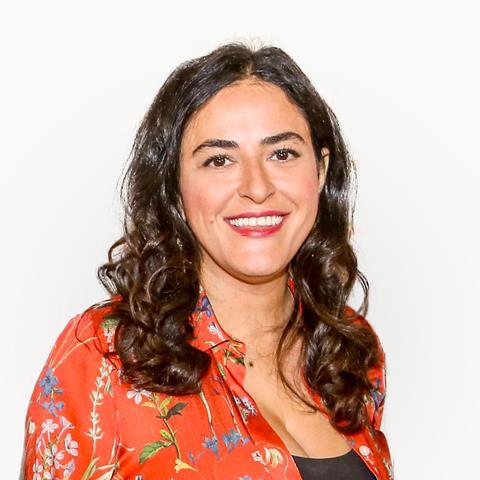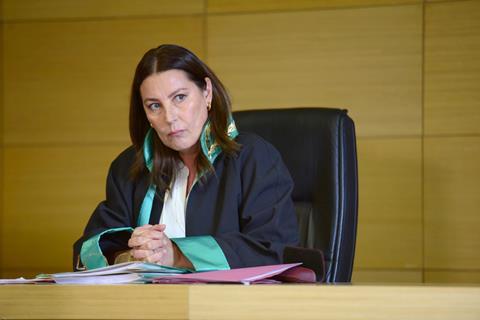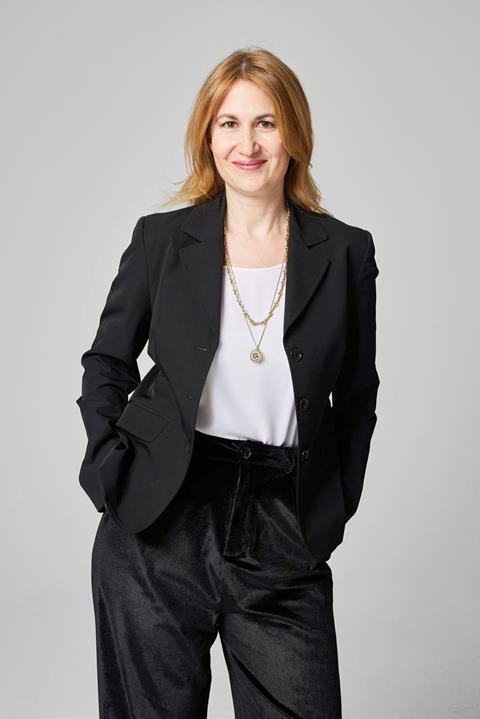The country exported more scripted series than any other bar the US and UK in 2023, with demand returning in LatAm, growing sales to Europe, Asia and Africa, and a shift in the types of shows produced to appeal more to streamers. But rising production costs, fuelled by high inflation, could threaten this momentum
It has been a turbulent few years behind the scenes for Turkish drama producers, with rampant inflation at home and softening demand in some key Latin American markets. But don’t let that fool you.
Turkish drama remains one of the world’s most widely travelled programme types, with domestic producers adapting remarkably quickly to local challenges and buyers whose demands are evolving quickly.
Look closer, and the growth of the country’s drama sector over the past five years has been spectacular. Turkey exported more scripted series than any other country bar the US and the UK in 2023, with demand for shows growing by 184% between 2020 and 2023, according to media analyst Parrot Analytics.
Demand for South Korean shows, in comparison, grew by 73% over the same period, despite the immense popularity of dramas such as Squid Game on Netflix.
So how does Turkey do it? Arguably, the greatest achievement of Turkish scripted producers has been their ability to consistently find new markets while maintaining demand in established ones.
Post-pandemic revival
Buyers in telenovela-loving Latin America have rebounded following the pandemic, with demand back to normal levels, and countries across Western Europe, Asia and Africa are now helping to fill the coffers of Turkish drama distributors and producers.

“Appetite remains as strong as ever in key territories in Central and Eastern Europe, Middle East and North Africa and LatAm,” says Handan Özkubat, director of Turkish drama at distributor Eccho Rights.
Latin America “really struggled” after the pandemic, she adds, but the region has experienced a “considerable” bounceback in 2024. Can Okan, founder and chief executive of Turkish producer and distributor Inter Medya, describes the region as a “cornerstone” for his company.
However, Spain is now a key buyer, while demand from Italy has surged, with shows such as Deception, from Istanbul-based Tims&B Productions, developing “passionate and loyal audiences”, Okan says.
“There is a widening appetite for global content in Africa, which is now moving onto long-running Turkish series”
Selin Arat, Tims&B
Selin Arat, director of international operations at Tims&B, agrees that Italy, along with Portugal, are fertile grounds for the company’s productions.
“Africa is coming in strong too, as there seems to be a widening appetite for global content, which started with Indian dramas and is now moving onto long-running Turkish series,” she says, listing Bulgaria, Indonesia and Malaysia as markets that are also returning to licensing Turkish drama.
“Notable growth” has also been experienced in regions like Central and Eastern Europe and the Balkans, says Elif Tatoğlu, director of distribution strategy and sales at Turkish distributor Kanal D International.

Tatoğlu’s slate includes shows such as My Mother’s Tale, Secret Of Pearls and The Family Burden, with their “relatable themes and emotional depth” drawing in buyers. There is also growth across Sub-Saharan Africa and Asia-Pacific, with “renewed interest” from European markets such as Spain and Portugal, as well as LatAm, and Brazil in particular.
A similar story is told by Özkubat at Beneath The Surface distributor Eccho Rights. She says that France and Italy are also growth areas, following the “complete success” of Turkish series in Spain.
Shifting dynamics
With such an array of countries on the client list, those behind the global growth of Turkish drama find themselves cushioned by the swings of individual markets and the shift from linear to streaming.
“Global streamers and broadcasters are both vital to our strategy at Kanal D International,” says Tatoğlu. “Global platforms have introduced Turkish dramas to new audiences, but traditional broadcasters remain our primary partners, especially in regions where linear TV dominates.

“At the same time, we are closely monitoring the shifting dynamics in the industry, where local streaming platforms are rapidly emerging and experimenting with diverse revenue models. For us, balancing these partnerships is key to ensuring maximum reach and audience engagement globally.”
Arat also points out that global streamers tend to commission series with fewer episodes, providing an opportunity for lengthier Turkish telenovelas when their shelves need stocking.
“The local teams at global streamers are in even greater need of content than linear broadcasters as their content is more quickly consumed than successful, long-running free TV drama – hence their stable interest in our content,” she says, adding the caveat that linear broadcasters remain Tims&B’s key buyers.
“There has been a shift towards producing bolder, edgier and more daring content for digital platforms”
Can Okan, Inter Medya
Indeed, in many markets, the rise of Turkish drama has been supported by linear networks, but the increasing growth of streamers is also now fuelling a change in the types of shows produced.

“In Turkey, there has been a remarkable shift towards producing bolder, edgier and more daring content specifically designed for digital platforms,” says Inter Medya’s Okan. “This evolution has captured the attention of both local and global streamers.”
This trend is noted by Tatoğlu, who highlights a “noticeable rise in demand for shorter series”, while Inter Medya has invested heavily in expanding its catalogue to capture this newer market, launching a mini-series-focused concept dubbed the ‘New Generation Turkish Series’.
“Our mini-series opened doors to markets that were previously unreachable, enabling us to connect with new audiences worldwide,” says Inter Medya’s Okan. “Their success has not only put these series in the spotlight but also redirected attention to our longrunning series, sparking interest from broadcasters and viewers who hadn’t previously considered them.”
The move, he adds, has created “momentum” that has helped to bridge the gap between streamers and broadcasters, further expanding the impact of shows. “While long-running series and broadcasters remain at the heart of our strategy, it is rewarding to see our content thriving across diverse formats and reaching new heights in both quality and scale.”
Streamer sales
While linear remains vital, global streamers are also looking at regional acquisitions, with Warner Bros Discovery’s Max in Latin America recently picking up the 300-episode Golden Boy from Eccho Rights. Özkubat says that deal was struck because the show’s success on linear was “irresistible for acquisitions teams from major streamers”.
However, it is not all good news. Like many markets, production costs have inflated rapidly over the past few years and, in some cases, at a far greater rate than in Western Europe and North America.
Indeed, with Turkey’s official inflation rate hitting 47% in November, the task facing local producers is Herculean. Much of the inflationary pressure has been caused by structural issues far beyond any one company’s control, with the problem blamed variously on a lack of monetary discipline, excessive government spending, high energy prices and a large current account deficit. The trusty telenovela’s global appeal is at least helping to narrow the export gap.

Arat’s Tims&B Productions is exposed to these fluctuations more than others. She says the “soaring costs” are made far worse by what she terms “the multi-layered economic problems our country is facing at the moment.”
“Some macro-level measures need to be taken of course, but the only thing that comes to mind on a micro level is for advertisers to increase their first-screen spending, which can help boost the liquidity of most networks that are struggling,” Arat says. “The crew and talent fee increments need to be stabilised at some percentage level. Otherwise, it will become very difficult to continue producing.”
Yet this domestic problem is also playing into the larger global effort to push Turkish drama, because local broadcasters normally pay for the bulk of a show’s budget. “Sometimes, with big-budget productions such as period dramas, which require extensive pre-production work, they tend to also pay an advance much earlier in the process,” she explains.
Nowadays, however, most series are being produced with “a very narrow profit margin, if not negative”, she adds. The result is that international sales revenues have become even more important.
Co-production growth
This story of rising costs is also feeding increased appetite for co-productions and Inter Medya’s Okan is leaning into partnerships to get shows on air.
His prediction for the next 18 months is largely positive, “with more co-pros and partnerships between Turkish creators, global production houses and streamers”.

“This trend will lead to stories designed with a global audience in mind, incorporating universal themes while maintaining the cultural richness that defines Turkish series,” he says. “Streaming platforms will encourage bolder themes, shorter formats and genre diversification,” which should support more growth.
Kanal D International’s Tatoğlu is of a similar mind, citing co-productions and efficient budgeting as the company’s strategy to mitigate rising production costs. “We anticipate a surge in international collaborations, particularly co-pros,” she says. “Additionally, the rise of streaming platforms will continue to influence the storytelling approach, favouring shorter, high-impact series.”
Arat, meanwhile, points to the emergence of AI and its ability to lower dubbing costs as one way that the market may grow yet further, though she is less bullish on the broader industry.
She says that without micro- or macro-economic measures being taken to mitigate increasing costs – coupled with an already weakened ad market – there will be a production slowdown. This will mean fewer weekly dramas getting made, with cheaper productions such as daily soaps and unscripted shows taking their place.
Özkubat says there is increased pressure on shows to deliver viewers and “cancellations after just a few unsuccessful weeks of ratings are becoming more commonplace”.
“There is a growing appetite for shorter series from streamers who want Turkish content that is easier to digest”
Handan Özkubat, Eccho Rights
But there is also optimism, especially around the popularity of shows with fewer episodes.
“There is a growing appetite for shorter series, particularly from international streamers who want Turkish content but need something that is easier to digest,” she says, pointing to Beneath The Surface.
“It features two police officers and a murder investigation, but it is not a crime drama - it is a series about the relationships between the officers, their families and everything else that gets in the way of the investigation.”

Okan also points to Asia as a region driving growth, and not necessarily only finished tape sales. The company recently sold remake rights for O3 Medya drama Love Undercover to a major South Korean production group, marking what is believed to be the first Turkish scripted format sale into the country.
It not only reverses the normal trend of Korean shows being remade in Turkey, but underlines that this is an industry adept at finding ways to get shows away, whatever turbulence is felt on the ground.








No comments yet